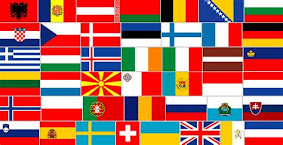by Robert Weissberg
Since the 1970s government has obsessively imposed "diversity" on a reluctant public.
Unfortunately, the political equivalent of a "it's good for you" liver-and-cauliflower diet has not ushered in an Egalitarian Paradise, despite promises that a jumble of races, ethnic groups and sexes enriches everyone. As matters now stand, the unpopular mania rests entirely on admonitions -- eat it because it's good for you, backed up by government power ("if you don't eat it, Daddy will jam it down your throat!").
The "everybody benefits" argument is exceedingly difficult to prove. Testimonials, even from distinguished college presidents, typically lack hard evidence outside of tortured statistics, and the counter-arguments, notably, the inferior past performance of favored beneficiaries, certainly seem just as persuasive. After all, if it is so worthwhile, why must government jam it down our throats? Diversity defenders stress vague hopes to be delivered tomorrow while opponents cry shameless political pandering to secure votes from those otherwise unable find lucrative jobs or gain admission to top schools. It is no wonder, then, that acrimonious litigation continues to clog the legal system.
Letting the marketplace place decide is the obvious non-coercive solution. Institutions and businesses will announce their "diversity content" as a box of Cheerios lists vitamin content and consumers will choose.
This is hardly new or controversial. Product labeling, even if government mandated, is ubiquitous, universally accepted and this surely helps consumers make informed judgments. Millions gladly pay a premium for rabbi-certified kosher food, government-labeled organic produce, and appliances displaying the UL seal when quality is uncertain. Labels tell us about movie rowdiness and the automobile industry already lists foreign content in its cars. Countless trusted firms, everything from Consumer Reports to privately run insurance institutes, verify car safety. Investors rely on Moody's or Morningstar to certify bond safety. Going one step further, racial entrepreneurs like Jesse Jackson and Al Sharpton may create proprietary rating agencies that for a fee would certify "minority content."
The voluntary character of this labeling is critical. Colleges will proudly affix their "diversity content" to brochures to secure a marketplace advantage if, as claimed, parents and students dislike lily-white schools since "whiteness" is a liability in an increasingly multicultural world. In fact, some college guidebooks already list the student body's racial/ethnic composition so we can only assume that this is treated as an advantage in competing for top-flight students.
The rewards of flaunting one's commitment to diversity far outshine government coercion or expensive, time-consuming litigation to achieve this noble aim. Greed-driven marketplace lures simply replaces government edicts. The commercial code's fraud provisions also virtually guarantees compliance. If Fortune 500 firms want to brag of "high minority content," their lawyers, not the Department of Justice, will do the police work rather than risk heavy fines for deceptive advertising.
Thankfully, diversity's utility can now be measured in hard dollars and cents. If consumers willingly spend, say, $25,000 at a certified racially diverse hospital for a coronary bypass operation that costs $15,000 at an all-white facility, then diversity's benefits are incontestable, just as proponents allege. If, by contrast, tickets from an airline boasting of their pilot "look just like America" (i.e.,12 percent of the pilots are African Americans, 13 percent are Hispanic, 51 percent are female, and so on) sell at a deep discount, then diversity opponents have won their case. Orbiz, Travelocity, and other travel sites, for example, might offer the option, "List all flights by diversity of pilots" so flyers can choose wisely.
This solution further eliminates federal diversity inspectors, targets, goals and similar invasive bureaucratic missives. The strategy is not foolproof, of course, since misrepresentation is possible, especially given the murkiness of racial identity. General Motors might inflate its "minority content" by including overseas Indian software engineers involved in designing industrial robots.
Yet, the record suggests that market-based fraud punishments may be swifter and more effective than government decrees. Imagine the devastating outrage if a diversity-loving desperate heart attack victim is rushed to the Malcolm X Community Medical Center only to unexpectedly encounter an all Jewish staff? This is a deceitful advertising lawsuit waiting to happen and the trial lawyers would have a field day. That deceptive medical facility may soon adopt the less alluring name, say, Beth Israel Hospital for Advanced Surgery, to ward off future lawsuits.
All and all, consumers will get to choose products rationally and the results will be plain to see. Again, better to have the market decide than rely on government commands. Surely the American public, just like all the experts aver, will pay a premium for diversity, and this entire contentious issue will fade into oblivion.
Since the 1970s government has obsessively imposed "diversity" on a reluctant public.
Unfortunately, the political equivalent of a "it's good for you" liver-and-cauliflower diet has not ushered in an Egalitarian Paradise, despite promises that a jumble of races, ethnic groups and sexes enriches everyone. As matters now stand, the unpopular mania rests entirely on admonitions -- eat it because it's good for you, backed up by government power ("if you don't eat it, Daddy will jam it down your throat!").
The "everybody benefits" argument is exceedingly difficult to prove. Testimonials, even from distinguished college presidents, typically lack hard evidence outside of tortured statistics, and the counter-arguments, notably, the inferior past performance of favored beneficiaries, certainly seem just as persuasive. After all, if it is so worthwhile, why must government jam it down our throats? Diversity defenders stress vague hopes to be delivered tomorrow while opponents cry shameless political pandering to secure votes from those otherwise unable find lucrative jobs or gain admission to top schools. It is no wonder, then, that acrimonious litigation continues to clog the legal system.
Letting the marketplace place decide is the obvious non-coercive solution. Institutions and businesses will announce their "diversity content" as a box of Cheerios lists vitamin content and consumers will choose.
This is hardly new or controversial. Product labeling, even if government mandated, is ubiquitous, universally accepted and this surely helps consumers make informed judgments. Millions gladly pay a premium for rabbi-certified kosher food, government-labeled organic produce, and appliances displaying the UL seal when quality is uncertain. Labels tell us about movie rowdiness and the automobile industry already lists foreign content in its cars. Countless trusted firms, everything from Consumer Reports to privately run insurance institutes, verify car safety. Investors rely on Moody's or Morningstar to certify bond safety. Going one step further, racial entrepreneurs like Jesse Jackson and Al Sharpton may create proprietary rating agencies that for a fee would certify "minority content."
The voluntary character of this labeling is critical. Colleges will proudly affix their "diversity content" to brochures to secure a marketplace advantage if, as claimed, parents and students dislike lily-white schools since "whiteness" is a liability in an increasingly multicultural world. In fact, some college guidebooks already list the student body's racial/ethnic composition so we can only assume that this is treated as an advantage in competing for top-flight students.
The rewards of flaunting one's commitment to diversity far outshine government coercion or expensive, time-consuming litigation to achieve this noble aim. Greed-driven marketplace lures simply replaces government edicts. The commercial code's fraud provisions also virtually guarantees compliance. If Fortune 500 firms want to brag of "high minority content," their lawyers, not the Department of Justice, will do the police work rather than risk heavy fines for deceptive advertising.
Thankfully, diversity's utility can now be measured in hard dollars and cents. If consumers willingly spend, say, $25,000 at a certified racially diverse hospital for a coronary bypass operation that costs $15,000 at an all-white facility, then diversity's benefits are incontestable, just as proponents allege. If, by contrast, tickets from an airline boasting of their pilot "look just like America" (i.e.,12 percent of the pilots are African Americans, 13 percent are Hispanic, 51 percent are female, and so on) sell at a deep discount, then diversity opponents have won their case. Orbiz, Travelocity, and other travel sites, for example, might offer the option, "List all flights by diversity of pilots" so flyers can choose wisely.
This solution further eliminates federal diversity inspectors, targets, goals and similar invasive bureaucratic missives. The strategy is not foolproof, of course, since misrepresentation is possible, especially given the murkiness of racial identity. General Motors might inflate its "minority content" by including overseas Indian software engineers involved in designing industrial robots.
Yet, the record suggests that market-based fraud punishments may be swifter and more effective than government decrees. Imagine the devastating outrage if a diversity-loving desperate heart attack victim is rushed to the Malcolm X Community Medical Center only to unexpectedly encounter an all Jewish staff? This is a deceitful advertising lawsuit waiting to happen and the trial lawyers would have a field day. That deceptive medical facility may soon adopt the less alluring name, say, Beth Israel Hospital for Advanced Surgery, to ward off future lawsuits.
All and all, consumers will get to choose products rationally and the results will be plain to see. Again, better to have the market decide than rely on government commands. Surely the American public, just like all the experts aver, will pay a premium for diversity, and this entire contentious issue will fade into oblivion.






























